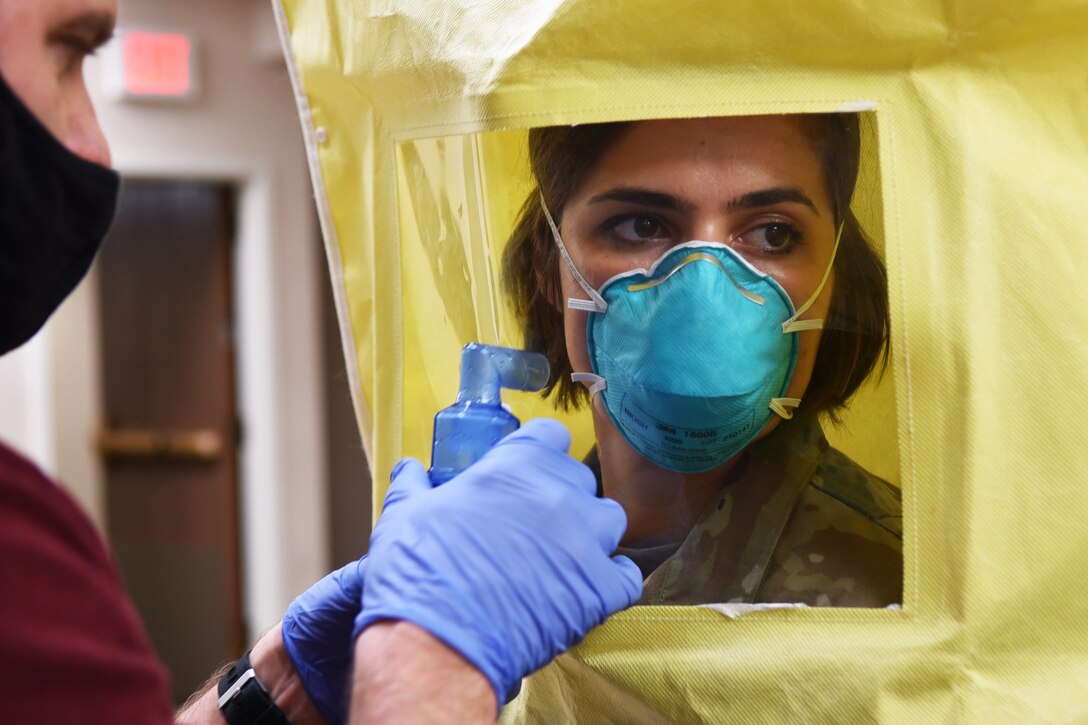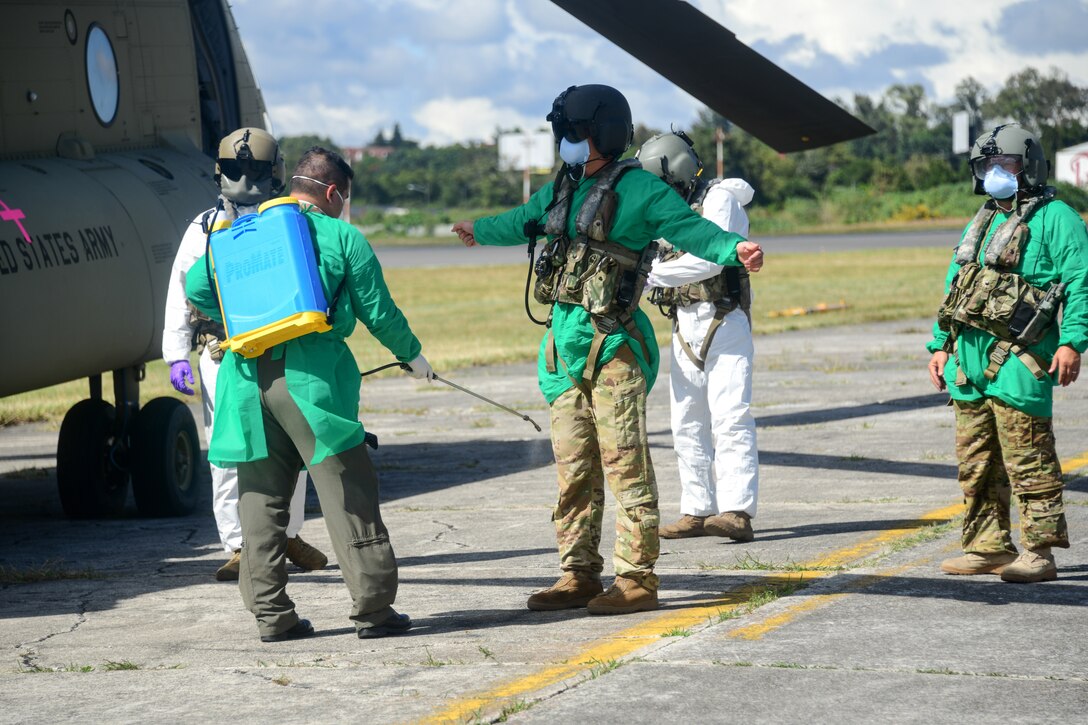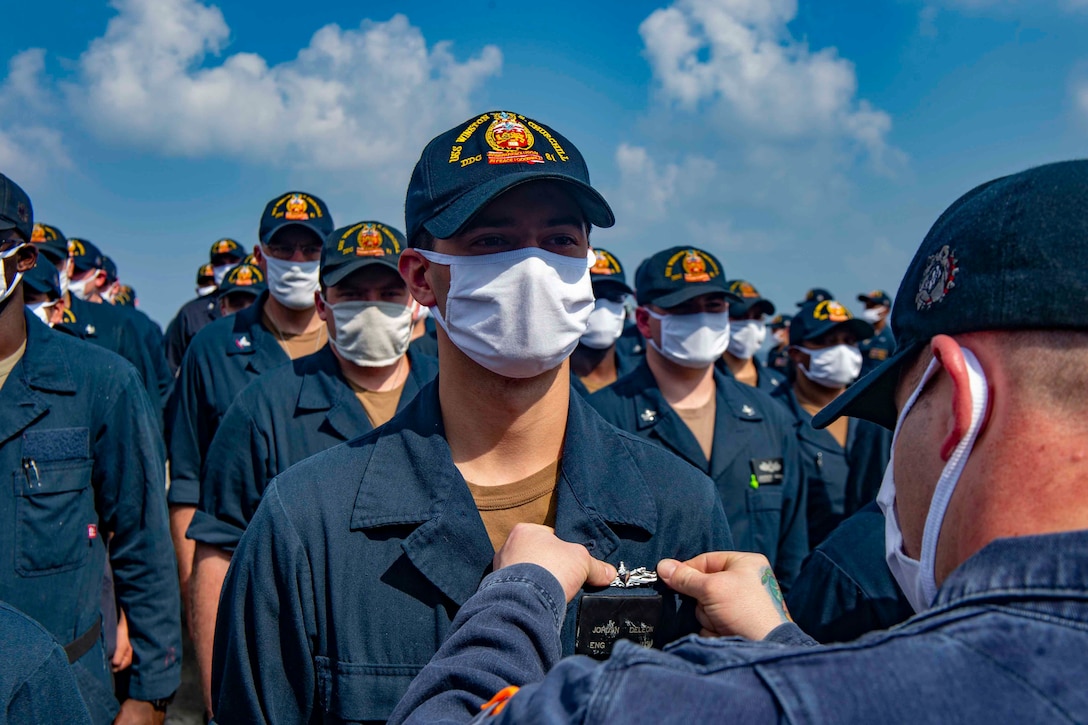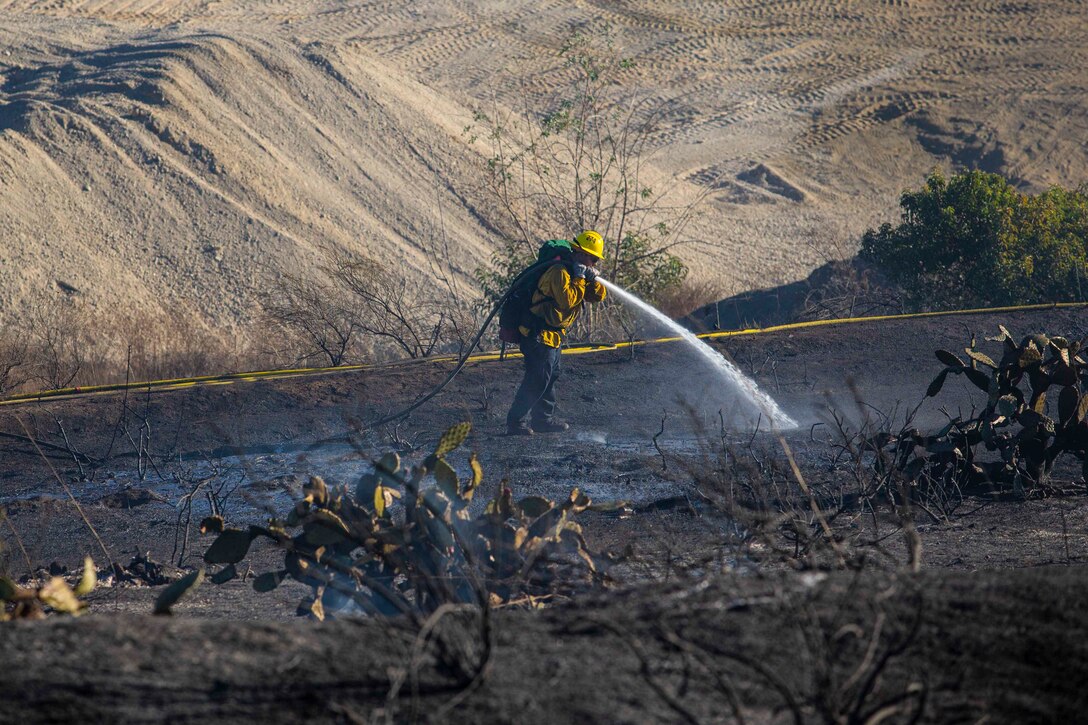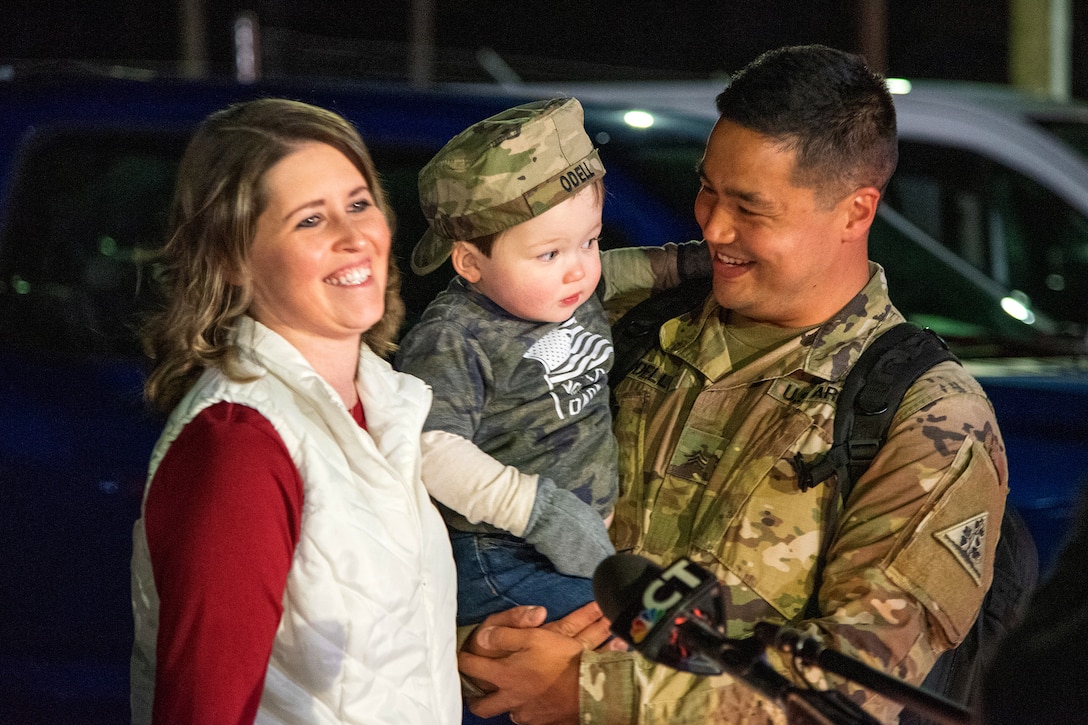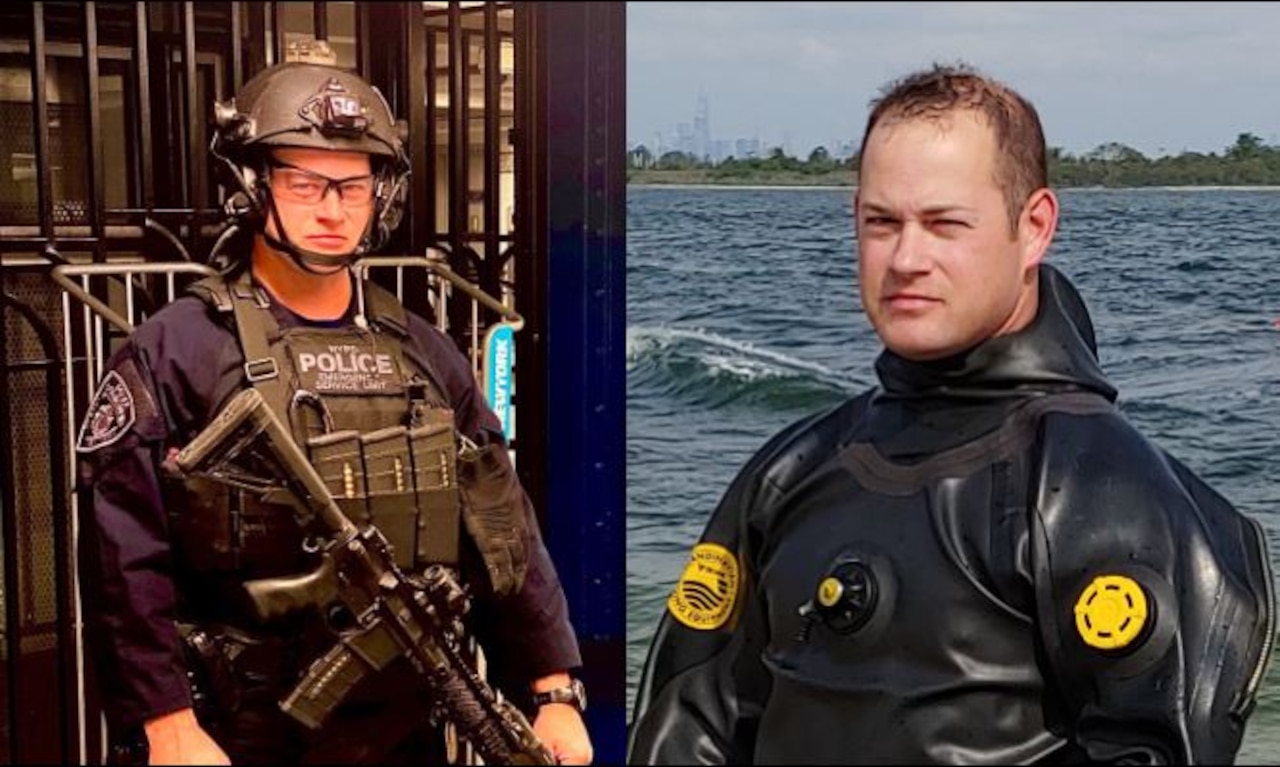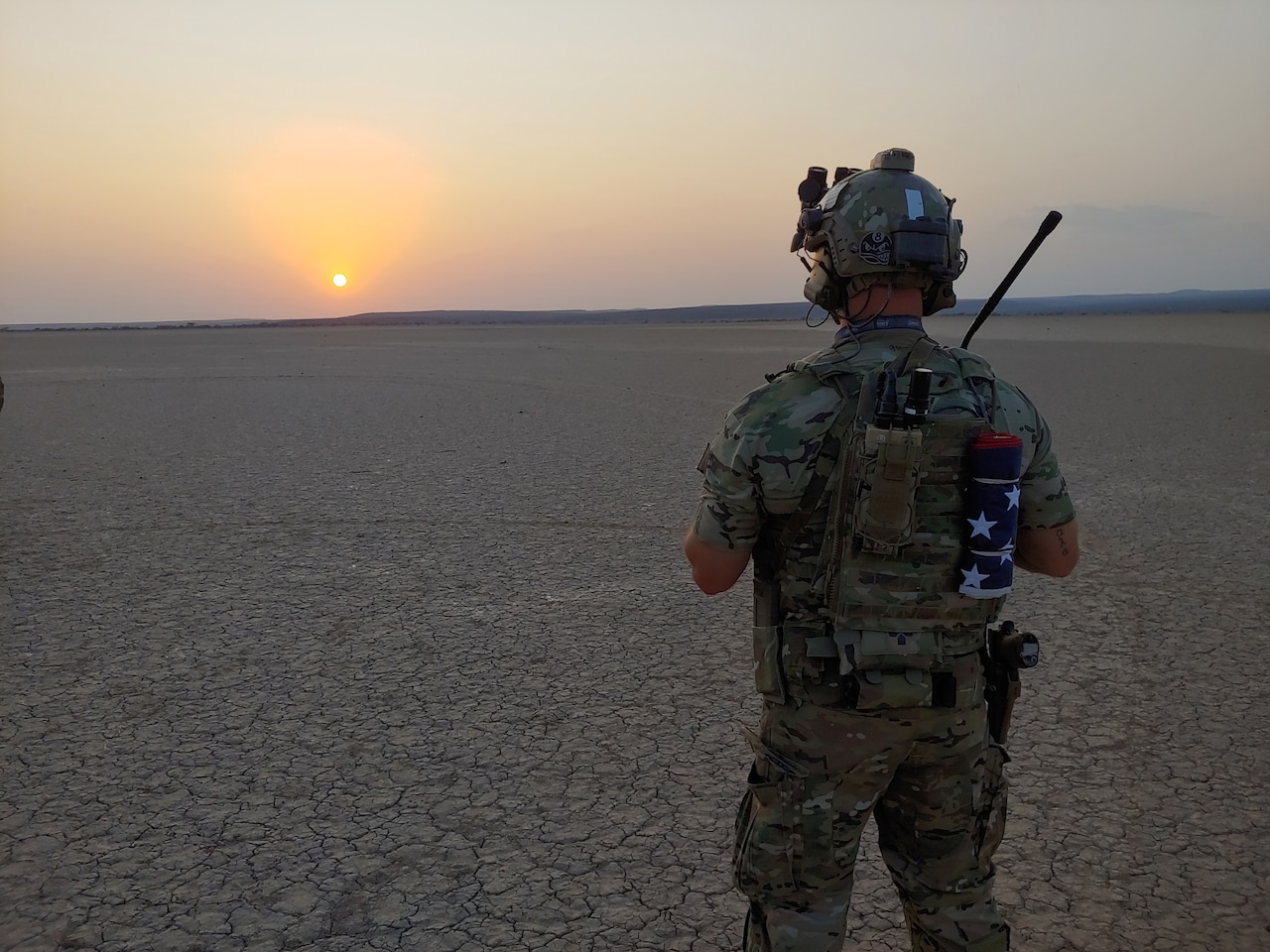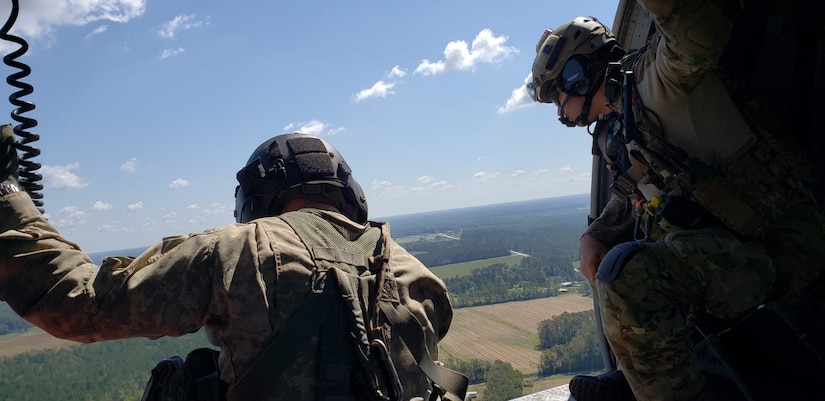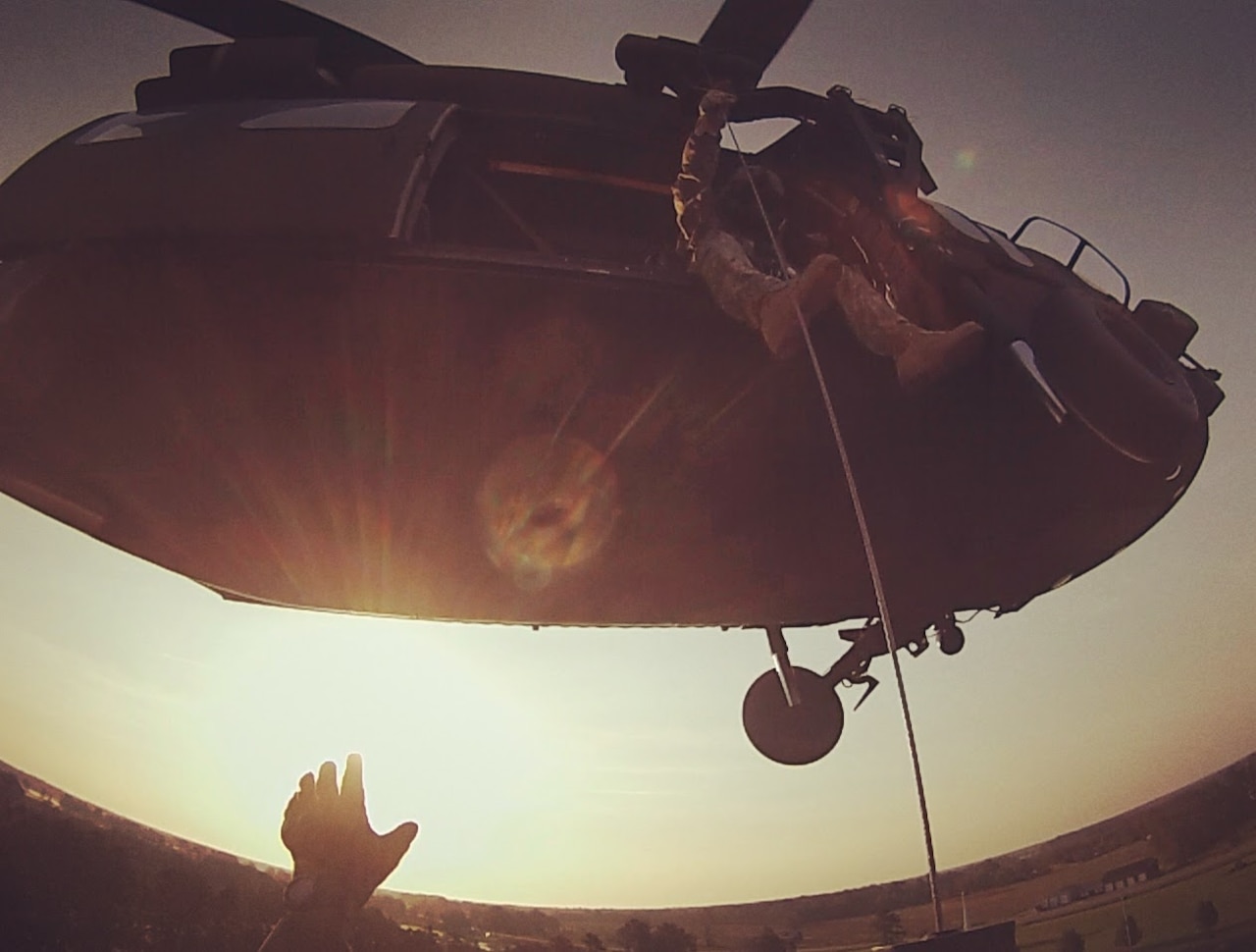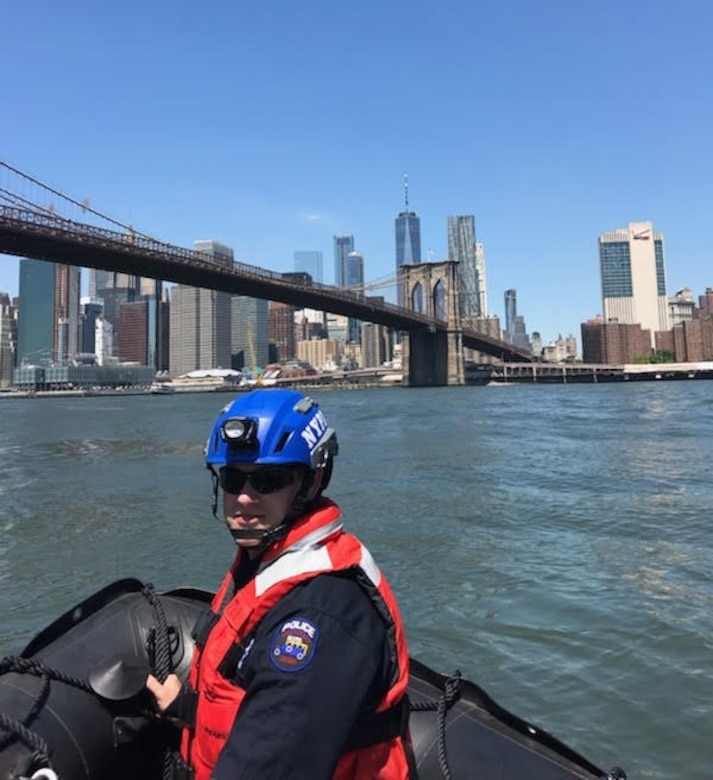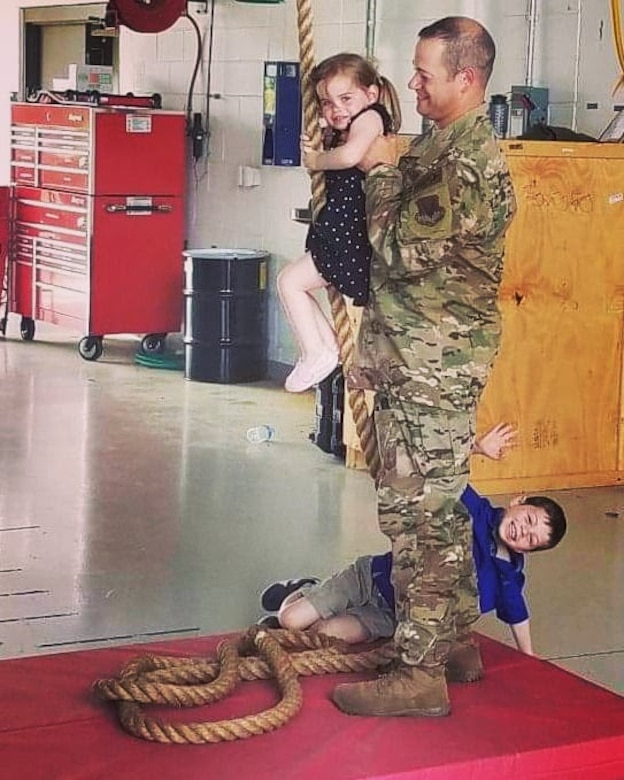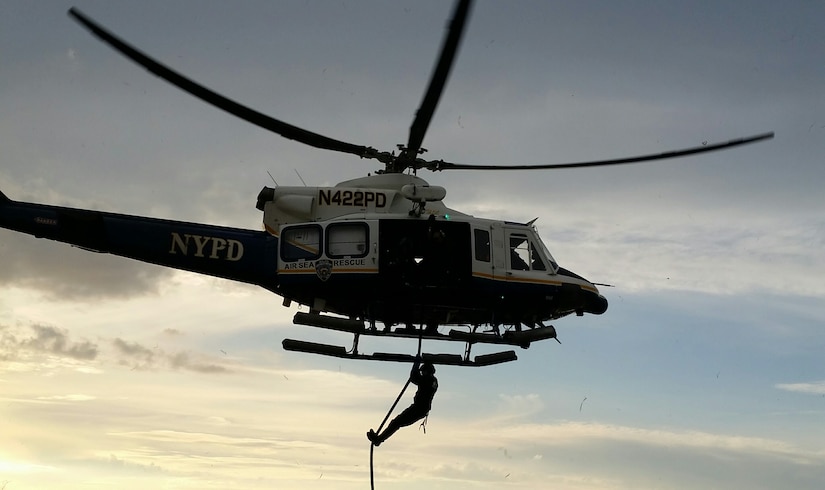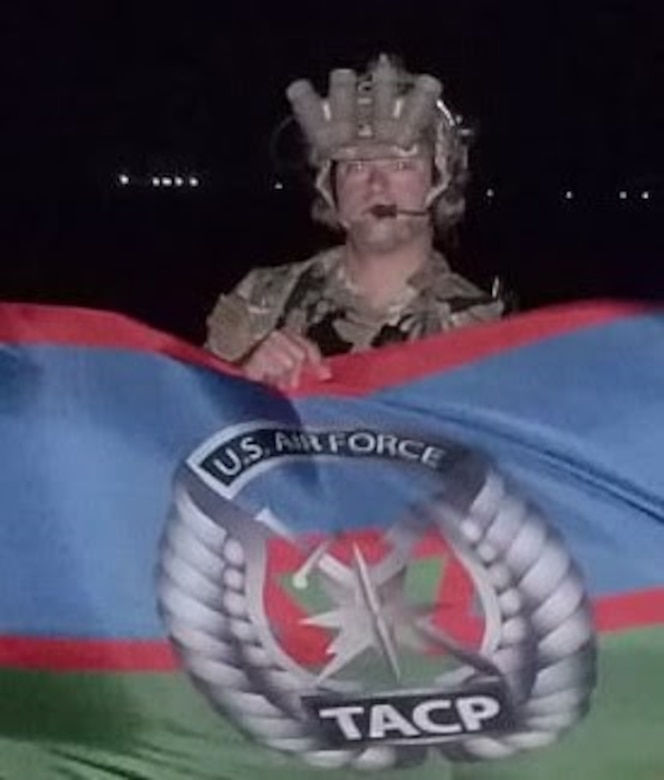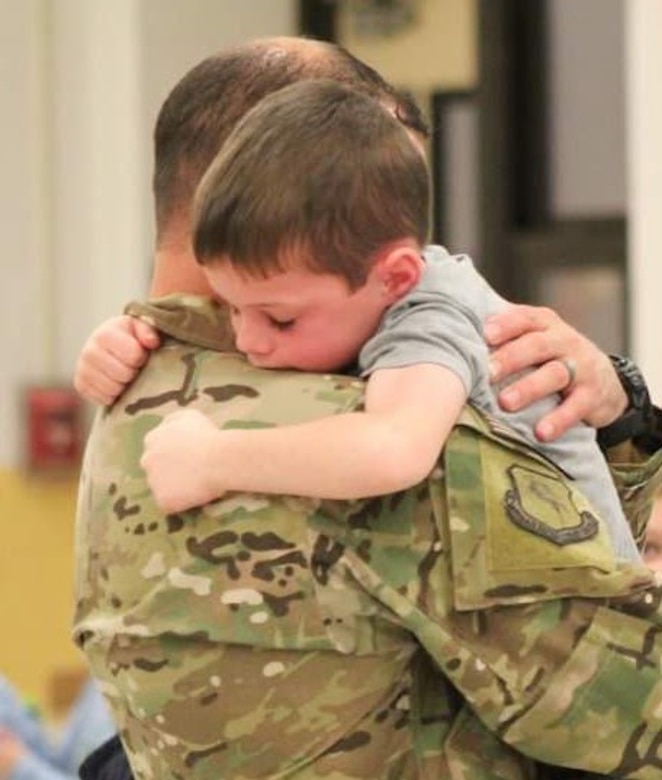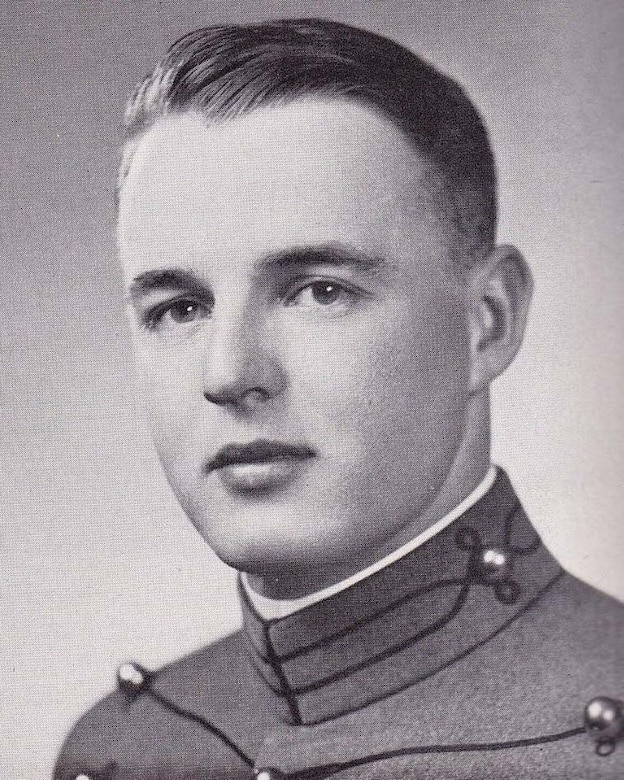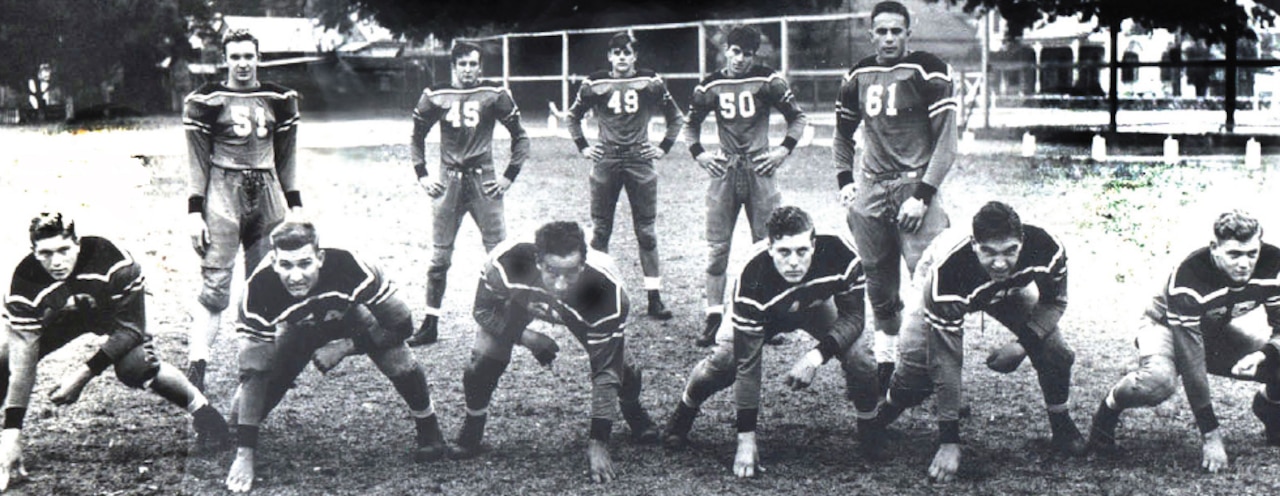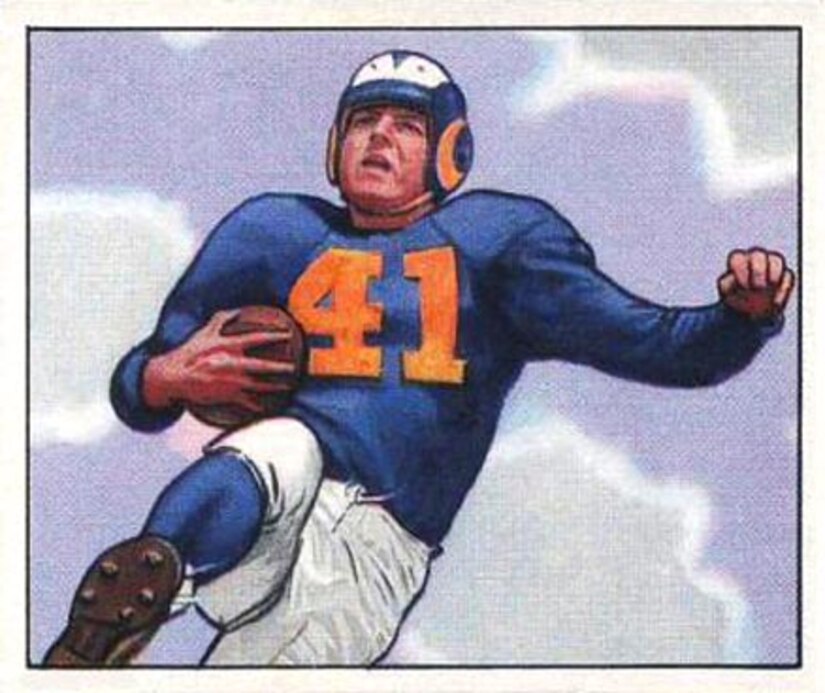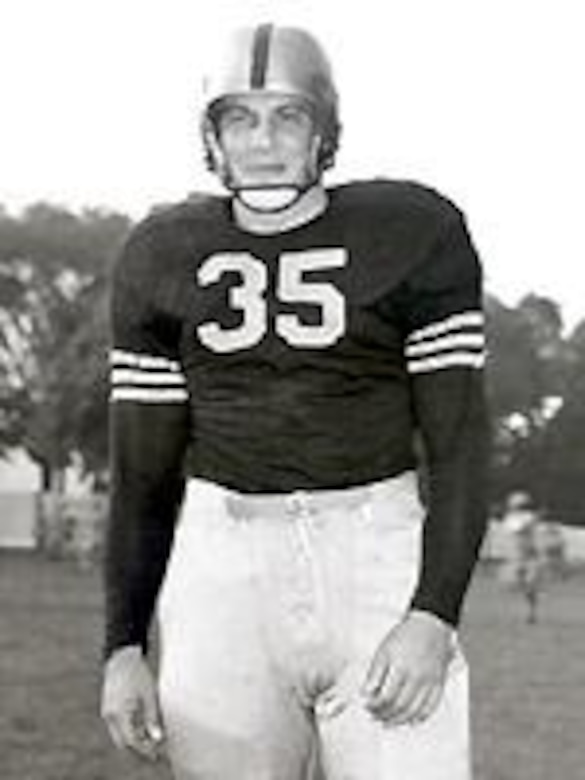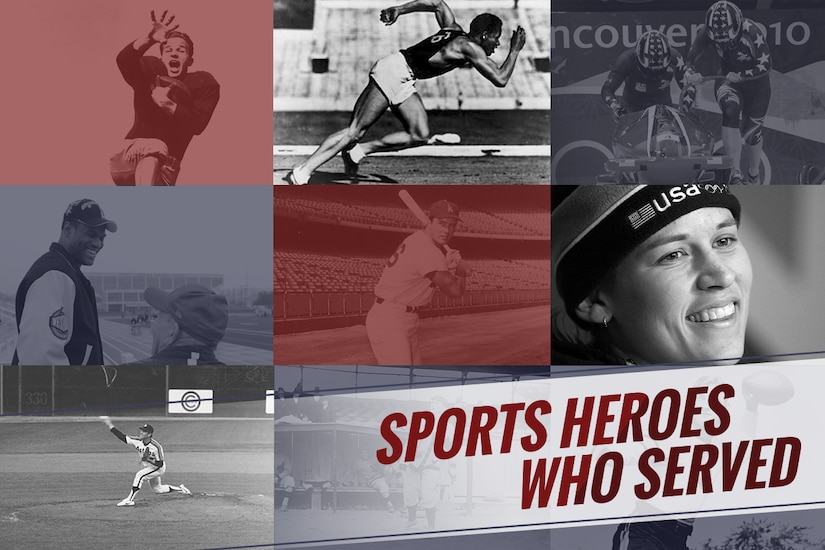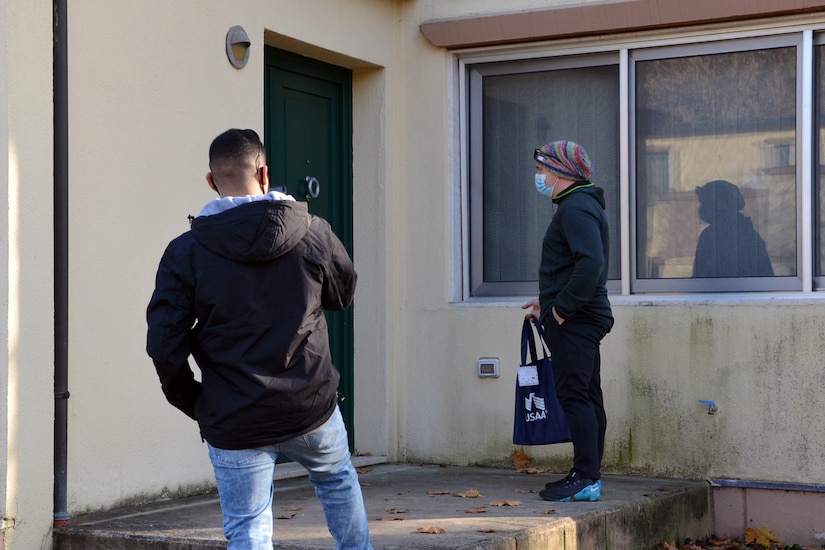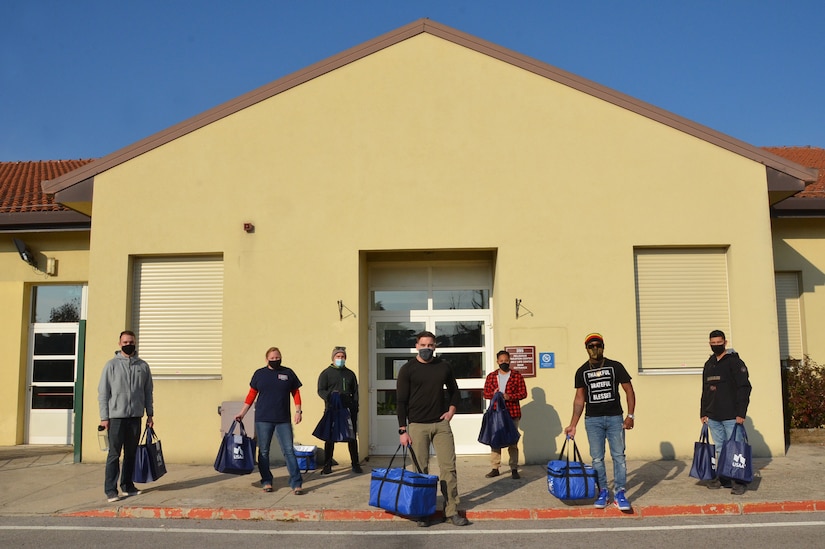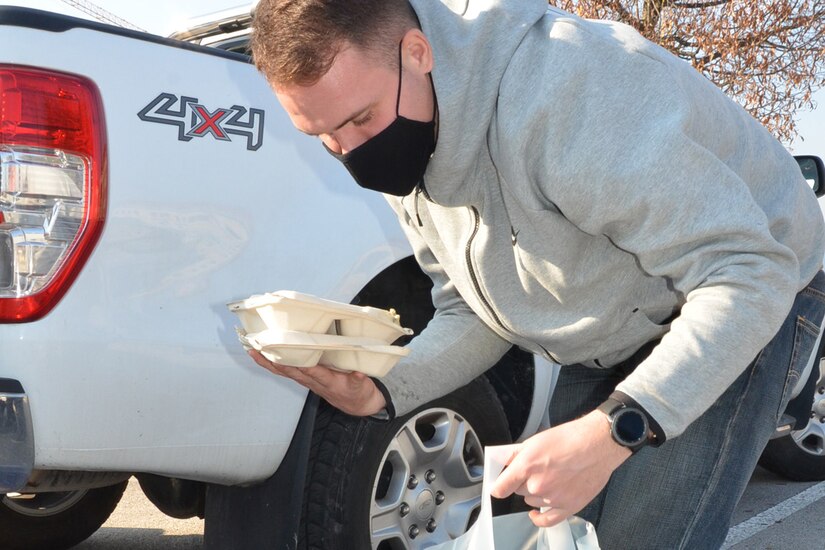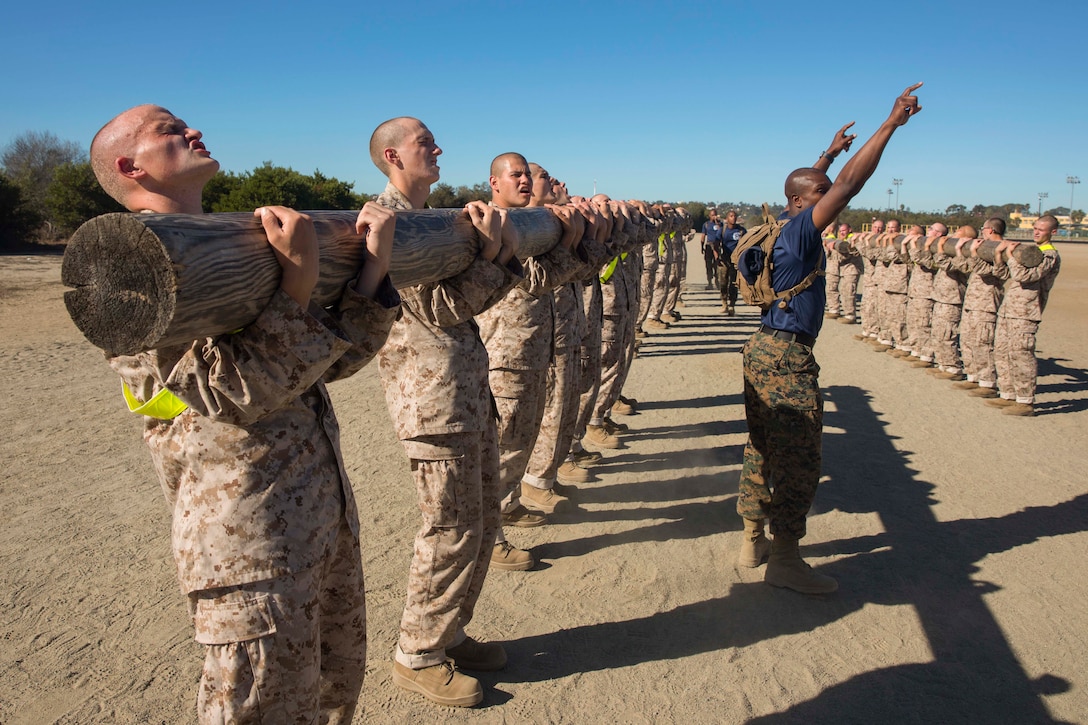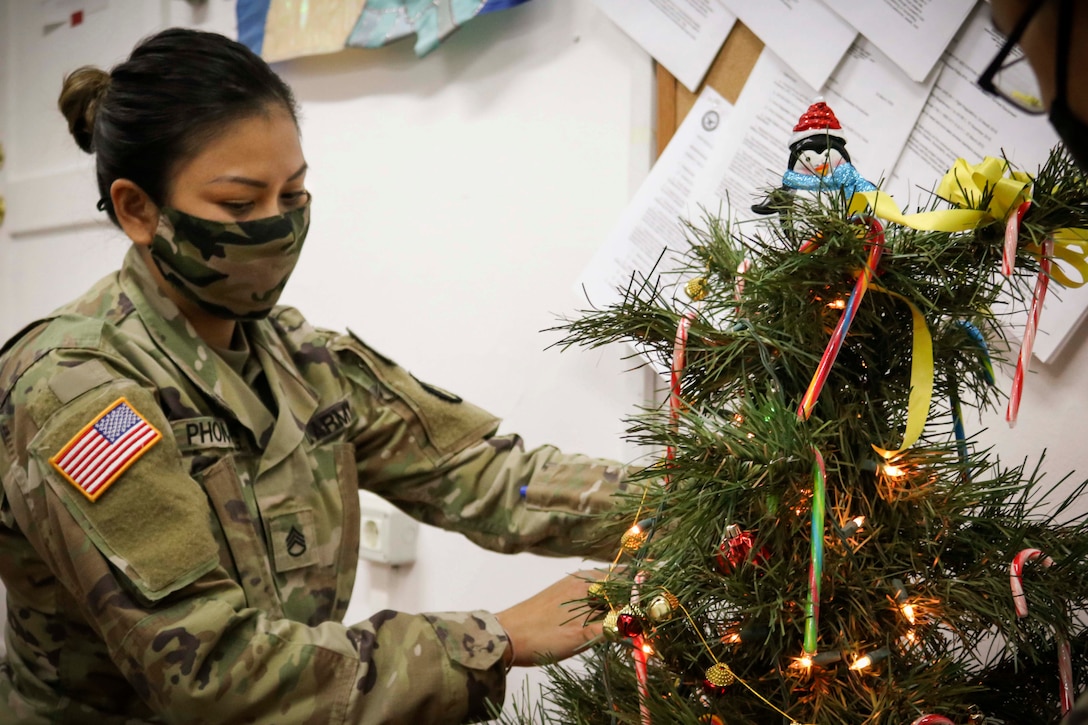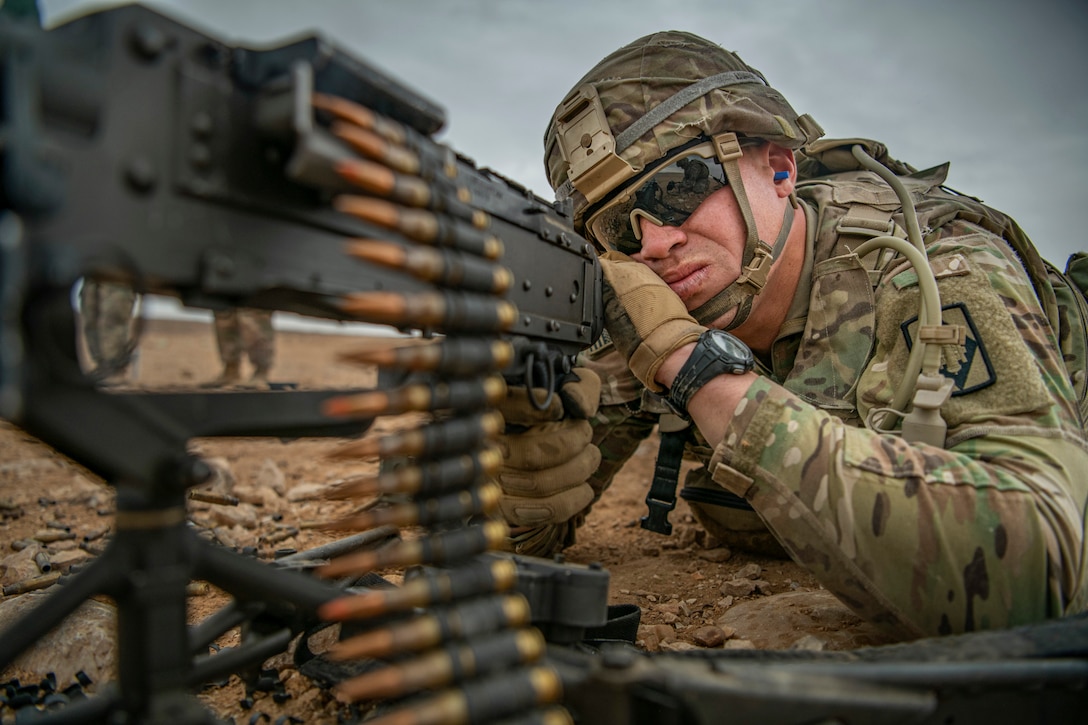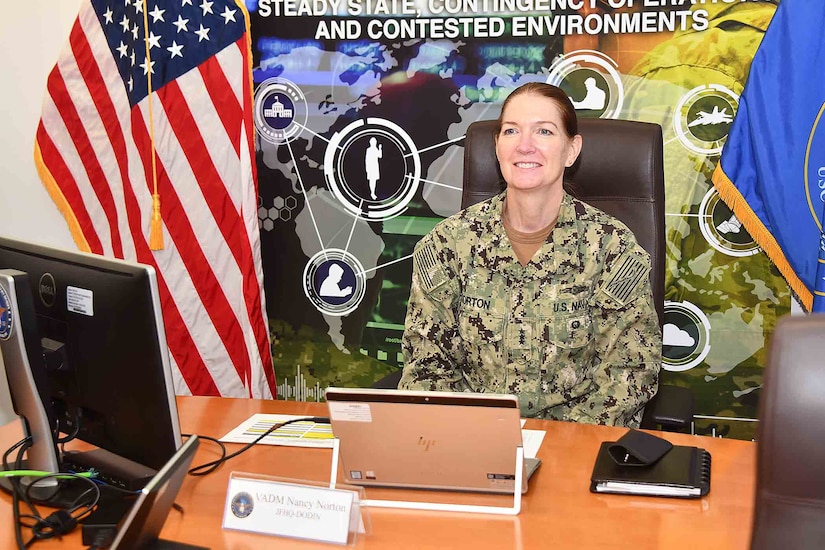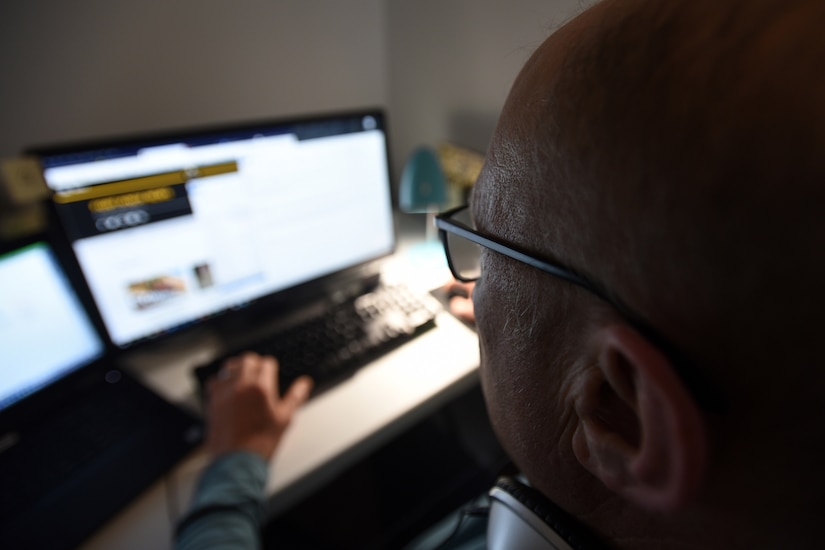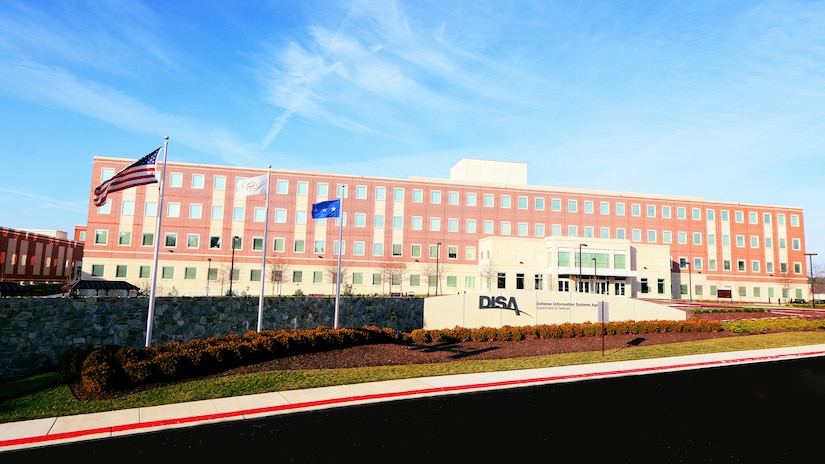Dec. 1, 2020
|
BY Katie Lange
, DOD News
If being a New York City police detective wasn't cool
enough, imagine that your side hustle is in special warfare, embedding
with troops across the world to help execute air strikes and other
direct offensive air operations.
Seems like a character in an action movie, right?
For Air Force Tech Sgt. Bill Reed from the New Jersey Air National
Guard, it's real life. Reed, 39, was one of many New Yorkers deeply
affected by the events of Sept. 11, 2001, so he decided to serve both
his city and his country.
Job Title:
Tactical Air Control Party Craftsman
Hometown:
Babylon, New York
Stationed:
Atlantic City Air National Guard Base, New Jersey
Unit:
227th Air Support Operations Squadron
For his ''day job,'' Reed is a New York City detective working with
the Emergency Service Unit – basically, the tactical and technical team
that's called in when the regular patrol officers need help. That job
often complements his duties in the military, where he's called on when
needed as an Air Force Special Warfare Tactical Air Control Party
specialist.
Not sure what that is? Reed explains his duties in the Q&A below
and details some of his most interesting experiences from each career –
the stories he can talk about, anyway.
When it comes to both jobs, let's just say that pretty much anything –
from SCUBA diving to rappelling, rescuing flood victims and protecting
world dignitaries — is on the table.
Why did you join the Air National Guard? Were you active-duty prior?
I enlisted into the Air National Guard in October 2009. I was prior
Army Reserve, having enlisted in the Delayed Entry Program out of high
school. I went on active-duty after my freshman year of college, but in
those pre-9/11 days, I soon realized that my MOS [military occupational
specialty] and unit left me unsatisfied and unchallenged. So, after my
time in the Army Reserve was up, I separated. I moved back to New York
from my college town, and, in 2005, I began my career with the New York
City Police Department.
Even with the satisfaction and stability my new profession gave me —
particularly in a post-9/11 NYC — I still felt like I needed to serve my
country in a different way, and I really missed the military. The
events of Sept. 11, 2001, affected me in such a profound way. I knew
that I had to go back in the military, but the question was, to do what?
At that time, I didn't know much about the Air Force or Air National
Guard and didn't really consider it an option. But, coincidentally, I
became friends with a former Marine, and I mentioned to him that I was
looking at going back into the military. He told me that he was in the
Air National Guard and that he just recently transferred to a new unit
in New Jersey. He said that he was a TACP — Tactical Air Control Party —
and gave me a basic rundown of the job. It sounded cool and up my
alley, but I needed to do my research. Within 24 hours, I got back to
him and said, ''I am 100% in! What do I have to do?''
What was it about being a TACP that drew you in?
I love that TACP training was hard and very selective. I love that
you need to use your brain in tactical situations. I love that you
integrate and operate with Army and Marine ground maneuver and special
operations units. I love that TACPs direct the action of combat aircraft
engaged in close-air support and other offensive air operations from a
forward position. I love that physical fitness and weapons proficiency
are as important as radio communications, map imagery and mission
planning. I wanted to be the guy who could conduct air strikes against
hostile targets that are in close proximity to friendly forces and that
require detailed integration of each air mission with the fire and
movement of those forces.
What are some of the missions you've been part of?
Most recently, in 2019, I was deployed to Combined Joint Task
Force-Horn of Africa, specifically the 82d Expeditionary Rescue Squadron
of the 449th Air Expeditionary Group. Our primary mission was to
provide joint terminal attack controller capabilities 24/7 to ensure
tactical power projection in the area of operations. Basically, we
provided the link between ground units and air assets in East Africa.
The major way we did so was in support of the East Africa Response
Force, an Army infantry company from the 101st Airborne Division
dedicated to responding to potential crises. Plus, we sustained Guardian
Angel/Tactical Air Control Party team integration in our Combined Joint
Operations Area, which synced the personnel rescue & recovery
mission of the squadron pararescuemen with our precision strike,
intelligence, surveillance and reconnaissance and communication
capabilities. As the noncommissioned officer in charge of the TACP
Detachment, I also often coordinated with outstations regarding ISR
assets and JTAC integration, and I also contributed to the CJTF-HOA
operational planning team.
What drew you to the New York Police Department?
I've been a New York City cop since July 2005, and I got promoted to
detective in 2014. Not to sound cliché, but I like helping people and I
like catching the bad guy. One time, as a kid, I remember discovering my
bike was stolen. I was furious — mostly mad at the fact that someone
took what was mine with no regard for my welfare or how hard my family
may have worked for that bike. That moment always stuck with me. I
wanted to be the guy who could find a kid's stolen bike one day, catch
the criminal and bring him to justice. Then there was 9/11 — seeing the
23 NYPD officers who paid the ultimate sacrifice and the civilians who
just showed up to work [to] have their lives cut short due to the savage
acts of terrorists. In hindsight, that day not only forever changed
policing in NYC, but it forever changed me.
In your 15 years with the NYPD, what's been the path of your career?
I started my career as a rookie on a foot post in one of the most
violent crime-ridden precincts in North Brooklyn. That assignment made
me learn real fast how to become an effective cop. I then went on to
patrol in a busy neighboring precinct for over six years. There, I
worked a patrol sector car, moved up to a plainclothes anti-crime team
that focused on felonies, and then spent a year working a gang
intelligence detail. After that, I had the privilege of being assigned
to the Detective Bureau, where I investigated cases within the same
precinct I previously patrolled.
In 2016, I tried out and was selected for assignment to the NYPD
Emergency Service Unit , where I currently work. In short, we are the
department's tactical and technical rescue team. We're trained in
special weapons and tactics for various rescues, hazmat situations and
other intense operations. We're also emergency medical technicians and
emergency psychological technicians.
Does the NYPD use your special military skills?
Of course. Certainly, those with special skills are more attractive
than others when applying for specialty units. For example, a military
explosive ordnance disposal tech would be well-suited for the bomb
squad, or a helicopter pilot would be well-suited for the aviation unit.
My military skills and experience make me better at my job in the ESU,
which is to handle situations that your typical patrol officer cannot.
An adage is that when the public needs help, they call 911; when the
police need help, they call ESU.
We deal with a vast array of jobs such as conducting high-risk
searches, negotiating barricade situations, diving to recover evidence
or to conduct water rescues, dignitary protection, counterterrorism and
helping suicidal people on a bridge or building — almost anything you
can think of. I have responded to such incidents as the West Side terror
attack, where an ISIS-inspired man used a rental truck to kill eight
people on Halloween in 2017. On the other hand, I've also coerced
kittens out of car engines, fished fallen keys from storm drains and
changed tires on a horse trailer.
Do you find your military and police work to be similar or different?
Sometimes yes, sometimes no. One example of a similarity is how I
manage communications. When I entered into TACP training, I had already
been a police officer for about five years, so I was no stranger to
stressful situations requiring clear and concise communications. While
on a TACP mission, I would typically have two radios actively using two
different frequencies, with several more programmed. I'd be in contact
with aircraft and the ground commander or other parties. I could also be
receiving and viewing video downlink feeds from an overhead aircraft's
sensor.
In ESU, particularly if I am the operator of our large response
vehicle, I act as the command and control node. I handle all comms from
the local precinct and the citywide special operations division radio
frequencies, as well as the inter-team frequency used by my team
members. All requests for additional assets — including coordinating
with our aviation, harbor or canine units – goes through me. If the job
is in an underground subway station, tunnel or large building, that adds
to the communications complexity, but being a TACP makes that aspect of
my police job seem second nature.
Do you think your police experience makes you a better National Guardsman?
Yes, absolutely. I interact with the public and handle stressful,
often dangerous, situations for a living. When it comes to simply being a
good Guardsman, I try to combine the three Air Force core values with
my experiences to be someone the public, fellow service members and my
family can look up to. By bringing my police experience to my squadron, I
try to enable ancillary skills, so that when it comes time to conduct
domestic operations, such as humanitarian relief after a natural
disaster, the squadron as a whole can be more effective.
Do your fellow Guardsmen ever ask for advice because of your ''day job?''
Yes, absolutely again. I can't tell you how many times I've fielded
questions from fellow Guardsmen — often junior airmen and junior
soldiers I've met — regarding my job, or how they should go about
becoming a police officer. My squadron has quite a few members besides
me who are also in law enforcement careers, including big city cops,
suburban cops, state troopers and federal agents. We all have varying
degrees of experience and have all dealt with our own different
situations. Needless to say, we have a lot to talk about, and it makes
for great company.
What's one of the coolest experiences you've had as a cop?
Being a New York City cop is like having a front-row ticket to the
greatest show on Earth, and being in ESU is like having the backstage
pass. Climbing to the top of the Brooklyn Bridge was one cool, yet
practical, experience. Seeing the rest of the city from that point of
view is pretty awesome. Another cool experience was conducting joint
high-rise rescue training with the Fire Department of New York, which
required me to rappel from an NYPD helicopter to assess the condition of
a rooftop prior to having a second helicopter land to insert
firefighters.
One more cool experience was during the 2015 United Nations General
Assembly. It's a huge event that happens in NYC every year, but that
year [it] also coincided with Pope Francis' first visit to NYC and his
UNGA address. That year, as a Detective Bureau member trained in close
dignitary protection, I teamed up with a Secret Service detail to
safeguard a particular foreign country's president for the duration of
his stay. I either met or was shoulder-to-shoulder with dozens of heads
of state from around the world.
What's one of the coolest experiences you've had in the Air National Guard?
In September 2018, Hurricane Florence hit North Carolina particularly
bad, which caused devastating floods over large areas of the state. I'm
a member of the New Jersey Joint Helicopter Search & Rescue Team,
too. As an Air National Guardsman, I use those skills as a hoist rescue
specialist alongside FEMA and soldiers with the Army National Guard. Our
team got activated to respond. I ended up conducting over 25 flight
hours in support of search & rescue, damage assessment, patient
transfer, emergency resupply and emergency personnel movement missions.
That experience with that awesome team helping Americans here at home
was one of the most gratifying things I've ever done.
You work with all military branches. What have you learned about the different services?
Yes, all branches … except I have not worked with the Space Force,
yet! Every branch has their own traditions, customs, quirks and
intricacies, but it is very apparent that, at the end of the day, we're
all on the same team.
Tell me about some of your experiences working with partner nations.
My first experience working with another nation's military was at
Fort Bragg in 2015 during Operation Toy Drop. It's the world's largest
multinational airborne training exercise that lets paratroopers
participate with partner nations, which also resulted in the award of
foreign jump wings. I had a great experience jumping with the Germans
and earned the German Parachutist Badge. The exercise was also a
fundraiser for needy children at Christmas.
In 2018, during Exercise Northern Strike — one of the military's
largest annual joint combined arms live-fire exercises — I worked on a
small TACP team with Latvian counterparts for two weeks. That was a
phenomenal experience, and many new friends were made because of it.
During my 2019 deployment, I often worked with the French military in
Djibouti. In addition to conducting live-fire weapons familiarization
and close-air support training with them, I was honored to have
participated in an airborne jump they hosted on St. Michael's Day, when I
earned the French Parachutist Badge.
Having the experience of working with various partner nations and
seeing how our skills and abilities complement each other reassures me
that we can capably continue to fight the good fight as allies.
Police officers can have weird schedules. Is that ever a problem with your Air National Guard schedule?
Yes, although thanks to the understanding of my unit leadership, we
make it work. For example, if I worked until midnight the night before a
drill day, my ANG duty day would be adjusted, especially because my
door-to-door distance is 160 miles. My police department work schedule
also usually includes two or three weekdays off, so I've often used
those days to go down to my ANG unit, most often to take advantage of
live-fly air at the range or to take part in scheduled proficiency
jumps. Maintaining proficiencies to stay a current and qualified JTAC is
a very important aspect of being a TACP — that's what doctrinally and
legally recognizes you as being capable and authorized to perform
terminal attack control.
When you're not crime-fighting and serving the ANG, what do you like to do for fun?
Spending time with my wife, 8-year-old son and 4-year-old daughter is
paramount. In the summer, we are at our local beach at almost every
opportunity. We also love taking a week or two to rent a cabin upstate
or in Maine to relax, hike, fish and enjoy the outdoors. Watching my son
play on his sports teams also gives me a ton of pride and joy. In the
winter, I like to go skiing at every chance. And, regardless of the time
of year, sometimes just spending the day at home doing stuff around the
house is what's in order.
